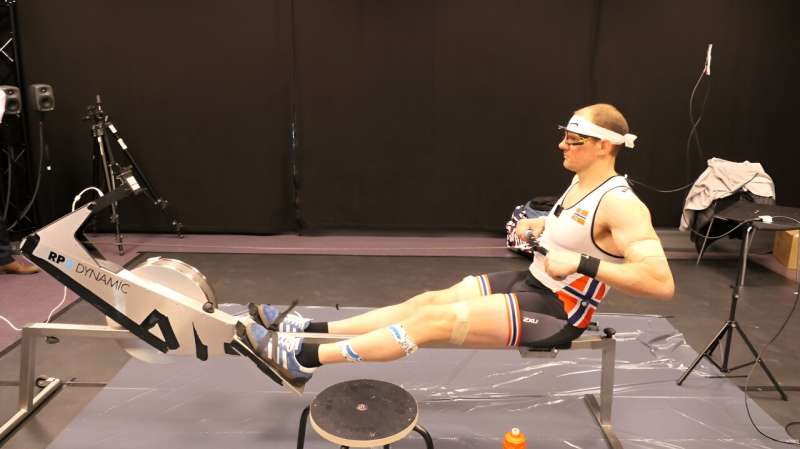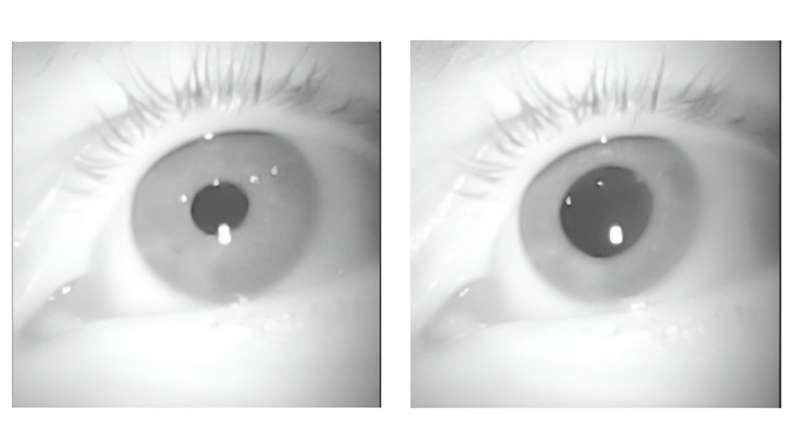This article has been reviewed according to Science X's editorial process and policies. Editors have highlighted the following attributes while ensuring the content's credibility:
fact-checked
trusted source
proofread
Sports and physical exercise require mental effort, even in elite athletes

For a long time, it has been a common belief that when you are very good at something, your body performs almost automatically—you act almost like a zombie. The Norwegian researcher Gunnar Breivik described this view in previous research.
Sports psychologist Henrik Herrebrøden also believed that automaticity was a key to success when he started his doctoral research journey in 2019.
"I may have put too much trust in athletes' verbal statements. In several studies, athletes have claimed that they did not think about anything, or that they were relatively relaxed, while performing. On the one hand, this seems quite sensible and very pleasant. The problem is that it probably does not give a thorough and truthful picture of a typical sports performance," Herrebrøden says.
He recently completed his Ph.D. at the RITMO Center for Interdisciplinary Studies in Rhythm, Time and Motion, University of Oslo. Herrebrøden investigated cognition and attentional processes in rowers.
"Ergometer rowing may not seem like an activity that requires attention. But it does."
Elites had the largest pupil dilations
Herrebrøden and colleagues tested 18 rowers in the lab: nine from the Norwegian national team and nine recreational rowers. All of them wore eye-tracking glasses measuring pupil size and blinking. They used a rowing ergometer and were instructed to row with certain levels of speed, while a monitor told them how fast they were rowing.
"It is not easy to measure brain activity when a person is physically active, but our eyes can give us some hints," says Herrebrøden.
For example, pupil size can say something about how intensively we use our attention.
"When comparing the elites with those at a lower level, we saw that the elite rowers demonstrated significantly greater increase in pupil size. This surprised us."
The researchers have published two articles based on these studies, one in Human Movement Science and another in the Journal of Sport & Exercise Psychology.
The elite mind is not just calm
Humans' pupil size can vary between about 1.5 and 8 millimeters. Increased pupil size may indicate increased activity in the cerebral cortex, the outer layer of the cerebrum, which is involved in thinking, interpretation of sensory impressions, planning, and execution of complex actions.
Herrebrøden himself used to play volleyball at the elite level.
"When we do something we are good at, and it goes well, it can feel as if the mind is completely calm—everything just flows. But in my Ph.D., I got to observe some of the world's best rowers while they performed well-known actions, and they seemed to use intensive attention at least as much as rowers at lower levels."
Subjective versus objective effort
So could it be that we make intensive use of our brainpower without noticing?
"It can happen! Sometimes we can become completely absorbed in what we do. The performance feels easy and pleasant, and we use a lot of mental effort without being consciously aware of it. We often use the term 'flow' to describe this experience, and flow usually occurs when we are challenged within the limits of our capacity."
However, the opposite phenomenon can also occur. Sometimes the activity feels effortful, while you may actually not put in a lot of effort. Researchers saw this in car racing simulation study. When driving conditions were very difficult, participants claimed to invest a lot of effort while physiological measurements indicated that they did not.
In sum, there is no one-to-one relationship between the effort we feel that we invest and the measurable, objective effort that we actually seem to invest.

Math problems led to declined rowing performance
During some of the trials, Herrebrøden wanted to give the participants a mental challenge. While rowing they were presented with math problems through loudspeakers, for instance, 36 + 3 and 15 x 16. They had ten seconds to respond to each problem.
"We saw that the trials involving math problems led to pupil dilations, as has been demonstrated in previous research. In our study, we also saw that the dual tasking affected the rowing performance negatively," Herrebrøden says.
While solving the math problems, the participants rowed with more variable speed levels and shorter stroke lengths, as compared to conditions without math problems.
"It seems like optimal sports performance requires attention. If you perform several attention-demanding tasks at the same time, your brain will look for shortcuts and prioritize. Our participants may have sacrificed precise speed control, as well as the long and beautiful strokes on the ergometer, in order to deal with the math problems while rowing."
Three minutes without blinking
Herrebrøden also investigated how many times the rowers blinked per trial.
"During single task rowing, with no math problems, the participants usually did not blink much. Some could row for three minutes without blinking! This could be a sign of intense concentration on what they were doing and the monitor in front of them."
The producers of the short film "Blink of an eye" observed a similar finding in 2013, when filming the Norwegian alpine skier Aksel Lund Svindal. He went downhill for two minutes—all the way to the bottom of the hill—without blinking. Normally humans blink approximately every third second.
When the rowers had to dual task, by rowing and solving math problems at the same time, the blink rates increased.
"A possible explanation is that the rowers had to 'shut the world out' for a moment and concentrate on calculations within their minds. One way to disconnect from the external world is to close your eyes, or blink more often."
Sport scientists have yet to uncover all that goes on inside the elite athlete's mind.
"Overall, it seems like we 'come alive' when we play sports. Our hearts beat faster, and our pupils get bigger. We are only starting to explore how such physiological characteristics are linked to athletes' cognition, and there is still a lot we do not know," Herrebrøden says.
A cognitively demanding activity
Through conversations with elite athletes, Herrebrøden has realized that an elite sports performance is more cognitively demanding and nuanced than many people may think. For an outside observer, rowing may seem fairly straightforward. Elite rowers, on the other hand, could talk for minutes about their thinking and strategies during a race.
"It might be comparable to wine tasting. If you have not tasted red wine before, most red wines may taste the same and you probably will not notice much nuance. For a wine connoisseur, on the other hand, each new red wine represents a world of different flavors, textures, smells and so on. Likewise, a rowing stroke cycle may offer more details to an elite rower's attention than a novice," Herrebrøden suggests.
Whether or not this can explain the large pupil dilations found in Herrebrøden's elite participants, is not clear.
"I do not think the elite rowers would have spent mental effort on rowing if it did not help their performance. My best explanation is that the elites pay attention and process information, such as feedback from their bodies or contextual cues in the performance environment, in ways that make them more adaptable and effective. However, they may be so used to this attentive processing that they do not find it draining or particularly demanding."
More information: Henrik Herrebrøden et al, Cognitive load causes kinematic changes in both elite and non-elite rowers, Human Movement Science (2023). DOI: 10.1016/j.humov.2023.103113
Henrik Herrebrøden et al, Mental Effort in Elite and Nonelite Rowers, Journal of Sport & Exercise Psychology (2023). DOI: 10.1123/jsep.2022-0164





















